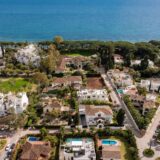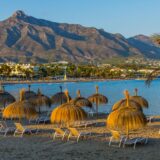If you’re thinking about making the move to Marbella as an expat, this comprehensive guide will give you a real feel for what everyday life is like on Spain’s stunning Costa del Sol. And below – all the nitty gritty details you’ll need: the best areas to live, property prices, rental market, private health insurance versus the Spanish public healthcare system, schooling, taxes, public transport, and how to get integrated and speaking Spanish like a pro.
Getting Started: Moving to Marbella as an Expat in 10 Easy Steps
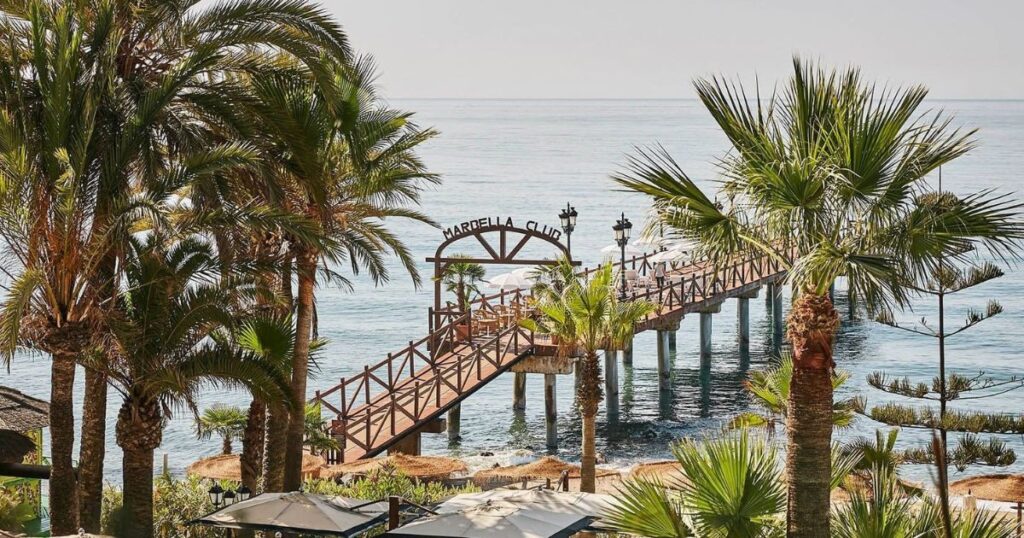
- First you need to decide how you’re going to register – as an EU citizen you can do it locally, but the rest of you will need to think about which visa is best (non-lucrative, Golden Visa, the Digital Nomad Visa, or maybe a work permit).
- Next, get your NIE (tax ID number) and register at the local town hall (this thing called empadronamiento).
- Now, sort out a Spanish bank account – you’ll need it to pay your rent, utilities and community fees.
- Make a shortlist of areas to live – think Marbella Town/Old Town, the Golden Mile, Sierra Blanca, Puerto Banús, San Pedro de Alcántara.
- Get yourself some housing – check out the going rate for rental prices, deposits, agency fees and community charges. If you’re buying, make sure you know how much different properties are going for.
- Set up your healthcare – if you’re eligible you can access the public system, but many expats like to have private health insurance for the peace of mind.
- Get your utilities, fibre internet and mobile phone sorted – check what’s available in your building or villa.
- Find your school – there are some excellent international schools and top-notch British curriculum private schools that offer primary and secondary education.
- Think about transport – public transport, taxis, or a car? Malaga Airport is just 40 – 50 minutes away by car, and from there you can fly to loads of major European cities.
- Integrate: learn some basic Spanish phrases, join in with local clubs and sports clubs, and get to know the other expats.
Why Marbella? What Marbella has to offer expats on the Costa del Sol
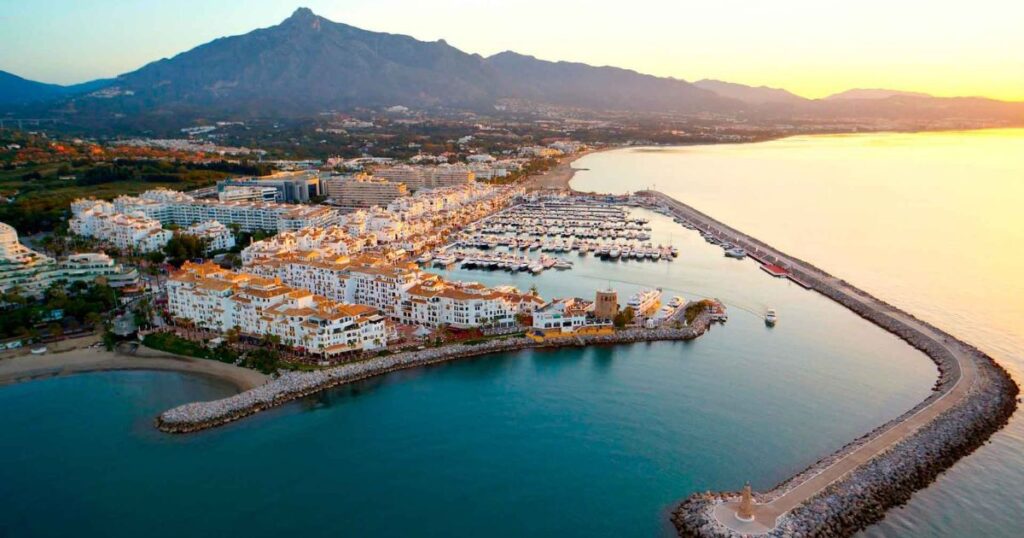
Marbella is one of those rare places that has a great balance of luxury and authenticity. You’ve got your Mediterranean resorts with all the trimmings, but you also have your real local barrios where people just get on with everyday life in cafes, markets and clubs. And then there’s the coastline – just gorgeous beaches backed by the stunning Sierra Blanca mountains, which gives the town a lovely mild climate with a pretty impressive 320 days of sunshine per year. And with an international population that’s second to none, it’s really easy to make friends, find services in English and still get a real feel for local life.
Getting around is a breeze. Malaga Airport is just 40-50 minutes away by car, with loads of direct flights to major cities and European destinations. And that makes it a real draw for remote workers, entrepreneurs who have international clients, and families who need to travel a lot. Plus, the culinary scene is thriving, there are some top-notch beach clubs and beach bars, and iconic addresses like the Marbella Club Hotel on the Golden Mile – one of the most prestigious hotels in southern Spain.
Pros and Cons of Living in Marbella as an Expat
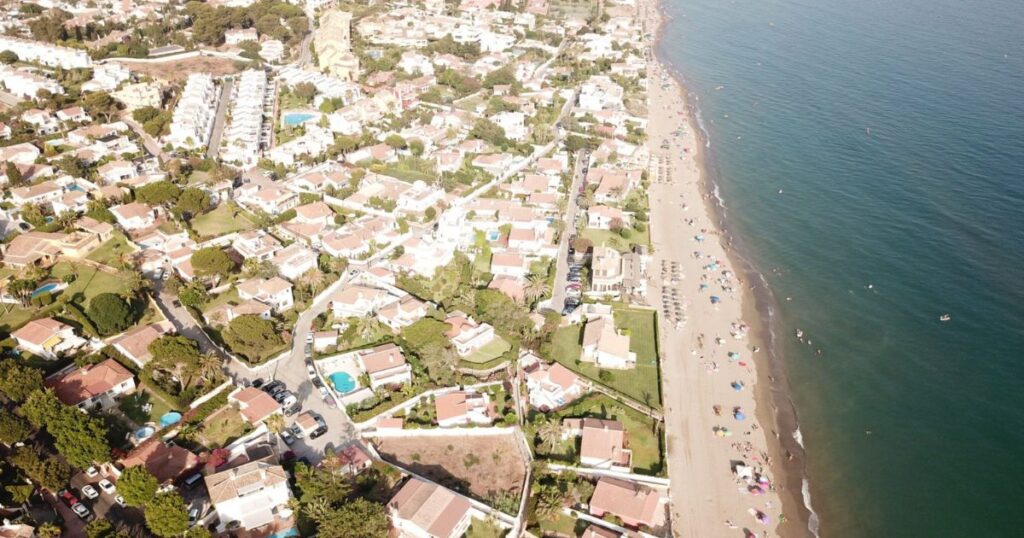
Pros
- Lifestyle: endless sunshine, swimable waters, family-friendly chiringuitos, high-end beach clubs, pool parties and world-class golf courses.
- Community: a lively international community and diverse expat communities, so you’ve got support networks from day one.
- Education and healthcare: top-notch international schools for international education, and access to a top-class hospital like Hospital Costa del Sol.
- Accessibility: it’s easy to get to major cities in Europe with Malaga Airport just 40-50 minutes away.
Cons
- Costs: housing costs in the more sought-after areas can be pretty steep, and you can expect seasonal spikes in rental prices.
- Transport: public transport is getting better, but it’s still limited compared to major cities. Many people choose to have a car.
- Integration: administrative tasks and deeper integration usually require you to speak Spanish beyond the basics.
The Best Areas to Live: Neighbourhoods and Nearby Towns

Marbella Town and the Old Town
The Old Town is at the heart of Marbella Town – cobbled lanes, orange trees, and intimate little plazas. It’s a great place to experience small-town charm and local culture, and it’s super walkable, which suits people who value everyday conveniences. Schools, cafes, boutiques and the beach are all within a 10-15 minute walk. Downsides – apartments can be a bit small, historic properties might not have all the modern amenities, and of course there are the crowds in the summer.
Golden Mile and Sierra Blanca
The Golden Mile is a stretch of luxury living that connects Marbella Town and Puerto Banus. You can expect to find beautiful villas, manicured communities, golf villas nearby, and of course the luxury venues and top-notch hotels. And then there’s Sierra Blanca which sits perched above it all, offering up panoramic views, high security, and a nice big slice of privacy. These are some of the most sought after areas in Marbella but you’ve got to be prepared for premium property prices.
Puerto Banús
The marina area is a bit of a hotspot – think designer shopping, nightlife, beach clubs and pool parties all rolled into one. It’s a bit of a lifestyle hub for those who enjoy resort hotels and dining out late. If you’re looking for more of a laid back vibe, families may find the quieter streets just back from the front or nearby San Pedro a more appealing option, as a bit of a balance to all the hustle and bustle.
San Pedro de Alcántara
San Pedro has gone and turned itself into a family favourite with its lovely beach promenade, excellent parks and lively town centre. It’s retained a bit of a feel of a typical working Spanish town, meaning you can get great value for money. And it’s just a stone’s throw from Puerto Banús, a good option for international families looking for a community and space without the hefty price tag of the Golden Mile.
Golf communities and suburban zones
Just a little outside of the main centre, you’ll find beautiful villas and townhouses set around fairways where you can find plenty of lovely villas surrounding private golf courses and sports clubs. These offer up peace, parking and space on tap, and often at property prices that are a bit more accessible than the frontline coast.
Housing: renting and buying property

The rental market in Marbella
As you might expect, rental demand peaks from April to October. Long term lets of 11-12 months are pretty common; short term summer lets come with a premium. When renting, you can expect to pay one to two months deposit plus agency fees – often one month’s rent. Community fees are usually paid by the landlord, so just make sure you get that written down.
Typical long term rental prices (estimates for 2025):
- Marbella Town/Old Town: 1-bed €1,200-€1,800; 2-bed €1,800-€2,800; 3-bed €2,800-€4,500\
- Golden Mile/Sierra Blanca: 1-bed €1,800-€2,800; 2-bed €2,800-€4,500; villas €6,000-€20,000\
- Puerto Banus: 1-bed €1,600-€2,500; 2-bed €2,400-€4,000; 3-bed €3,500-€6,000\
- San Pedro de Alcántara: 1-bed €1,000-€1,500; 2-bed €1,500-€2,300; 3-bed €2,200-€3,500
Buying in Marbella
Property prices in Marbella vary wildly. Apartments typically start around €3,500-€6,000/m² – depending on the area and finish. New builds with all the bells and whistles cost even more. Townhouses are often in the €500k-€1.2m bracket, while beautiful villas and golf villas in prime spots can run €1.5m-€10m+. If you’re looking to get out of the expensive areas, try looking east or west of the centre and just inland.
Buying process highlights:
- You’ll need to get an NIE, open a Spanish bank account and hire an independent lawyer to get started.
- Budget for 10-12% of the purchase price on top of the actual cost to cover taxes and fees – resale property in Andalusia comes with an ITP of 7-10%, while new builds have 10% VAT + stamp duty on top of that, plus notary and registry fees.
How to secure a home
You’ll need to provide ID (passport), an NIE, proof of income or funds and sometimes references. For rentals, you’ll need three months’ liquidity to cover the deposit, first month’s rent and agency fees. For a purchase, get your finances in order early and line up your financing – Spanish banks will often lend 60-70% LTV (loan to value) for non-residents.
Cost of living in Marbella: budgeting for the real world
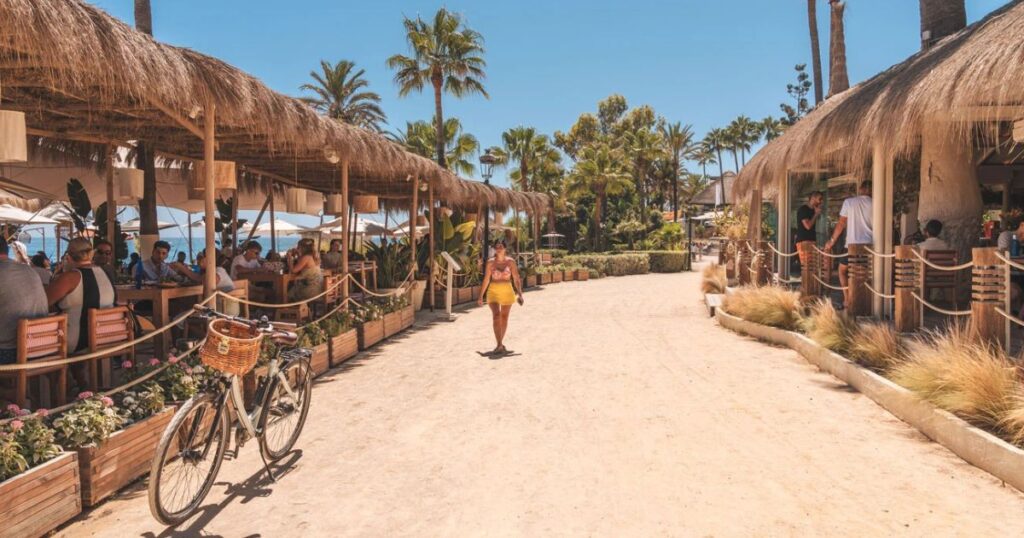
A snapshot of what it costs to live in Marbella (these are just rough estimates, but should give you a rough idea for a couple or small family)
| Category | Budget (value areas) | Mid-range (central/coastal) | Premium (sought after areas) |
| Rent (2‑bed) | €1,400–€2,000 | €2,200–€3,200 | €3,500–€5,500 |
| Utilities + Internet | €150–€250 | €200–€300 | €250–€400 |
| Groceries | €350–€550 | €450–€700 | €600–€900 |
| Eating out | €200–€400 | €350–€700 | €700–€1,500 |
| Transport (car/public) | €120–€300 | €200–€450 | €300–€600 |
| Schooling (per child) | €0 (public) | €700–€1,200 | €1,200–€2,000 |
| Health insurance (adult) | €0 (public) | €45–€120 | €120–€250 |
Work, business and taxes – what’s the situation like in Marbella?

Finding work and getting a job in Marbella
The local economy is pretty much all about services – think hotels, real estate, spas and gyms, medical treatments, and fancy services for the owners of big villas. Being able to speak a few languages is a definite bonus (english is pretty common, but speaking some Spanish will very much open up more job opportunities).
Remote work, freelancing & starting your own business
Loads of people do remote work with clients in all sorts of time zones – Marbella has co-working spaces, super fast internet, and an airport that makes getting to where you need to go a real breeze. Freelancers can get working pretty easily too, as long as you get all the right paperwork sorted – that includes registering as an autónomo, keeping track of your VAT (IVA) & making the quarterly returns.
Salaries & how the tax system works
Salaries vary a lot in Marbella, from a low of around €1300 per month for a junior role in services, up to over €6000 for a top level job or something super specialist. In Spain, income tax is a bit complicated – it’s progressive, and you have to pay national tax as well as regional tax on top (the Andalusia rates are always changing, but you can expect to pay a marginal rate of somewhere from 19% up to over 40% depending on your income). On top of that, there are social security contributions whatever you do – and if you split your time between countries, you’ll need to get all the paperwork sorted to avoid any tax residency headaches.
Banks & getting your money sorted
To get a Spanish bank account, you’ll need ID and some proof of address – even if you’re not a resident, you can get an account. The fees differ from bank to bank, and some are a lot cheaper than others (so it’s worth looking into online banks if you can). Multicurrency cards can be pretty useful if you travel a lot, and direct debits make paying bills like utilities & community fees a whole lot simpler.
Visas, residency & dealing with all the paperwork
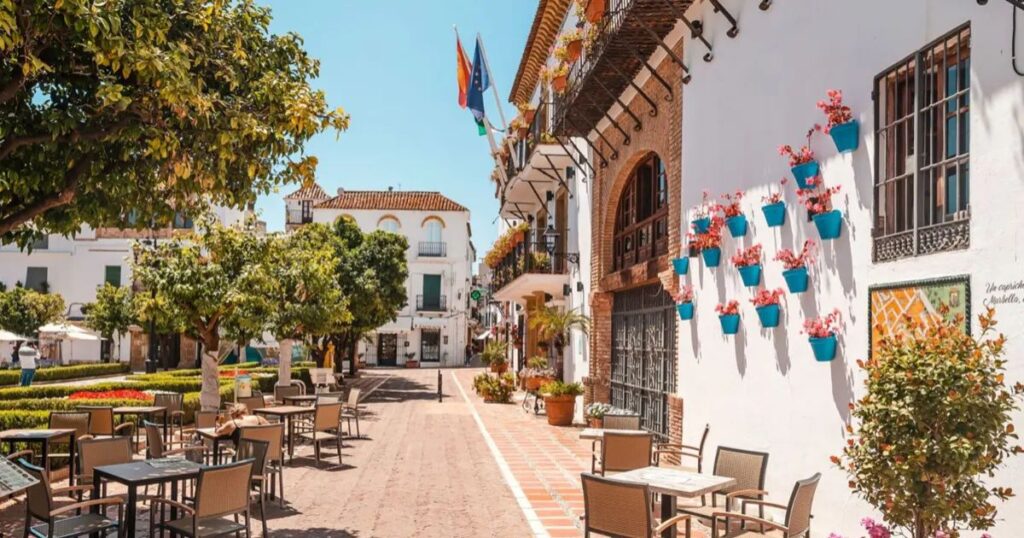
EU citizens vs non-EU – which way do I go?
EU citizens – just get yourself registered on the padron at your local town hall, and you’re good to go.
Non-EU – there are loads of different visa options, including the Non-Lucrative Visa (for retirees or folks with passive income), the Golden Visa (for people buying property in Spain), the Digital Nomad Visa (for remote workers), family reunification, or if you’re lucky, a work permit sponsored by an employer.
Stuff you need to get sorted – the basic admin tasks
NIE (Número de Identidad de Extranjero) – that’s the tax ID number you need for everything from getting a contract to buying a house.
Empadronamiento – get yourself registered on the padron at the town hall, and you’ll get access to all sorts of services, including schools for the kids.
TIE (residence card) – non-EU residents will need this to prove your status – and when you can, swap out that foreign driving licence for a Spanish one.
Insurance – get yourself covered for a house, a car, and private health if you need to – and if you’re planning to drive, you’ll need to register your vehicle too.
Getting medical care in Marbella – public & private options
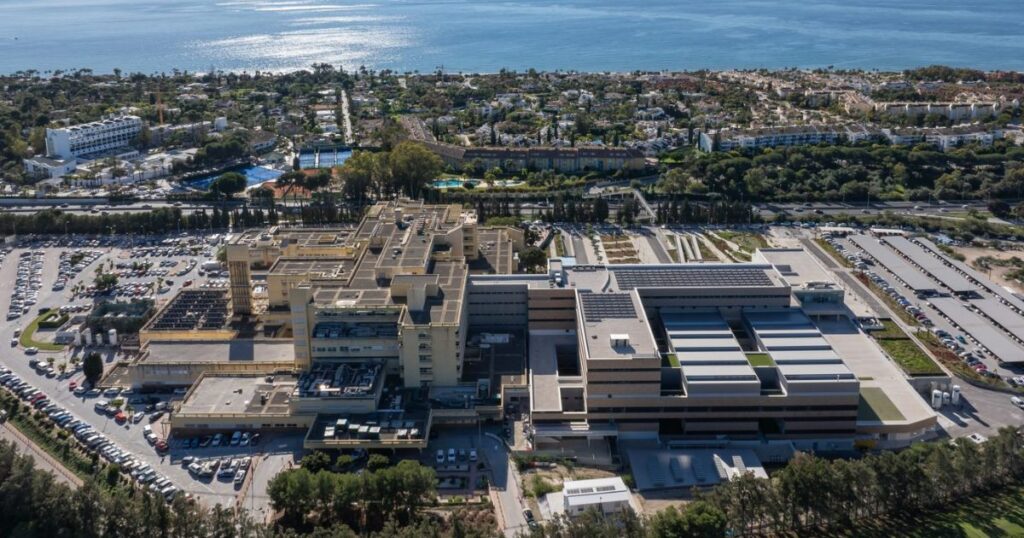
The public health system in Spain is pretty great
If you’re employed, or you’ve registered as a resident (and qualify), you’ll have access to the public healthcare system – and you can register with a doctor of your choice. The Hospital Costa del Sol is one of the best in the area, and there’s plenty of help in multiple languages from the staff.
Private health care
If you’re willing to pay for it, private health cover is available in Marbella – and of course, there’s all sorts of private hospitals, clinics & doctor’s surgeries to choose from too. Many expats opt for private health insurance because they want shorter wait times and to be able to deal with English speaking specialists. But the cost will vary a lot depending on your age and how comprehensive it is – we’re talking about a monthly outlay of anything from €45 to €120 per adult, with more comprehensive plans naturally costing the most.
Marbella is pretty lucky in that it has some excellent private clinics for diagnostics, dentistry & elective procedures so if you can afford it, it’s a good option. It’s also pretty common for people to use the public system for emergencies & then the private system for the rest.
Useful links:
- Hospital Costa del Sol: https://www.hcs.es
- Andalusian Health Service (SAS) – the people who look after you: https://www.juntadeandalucia.es/organismos/saludyfamilias
Schools & education for international families
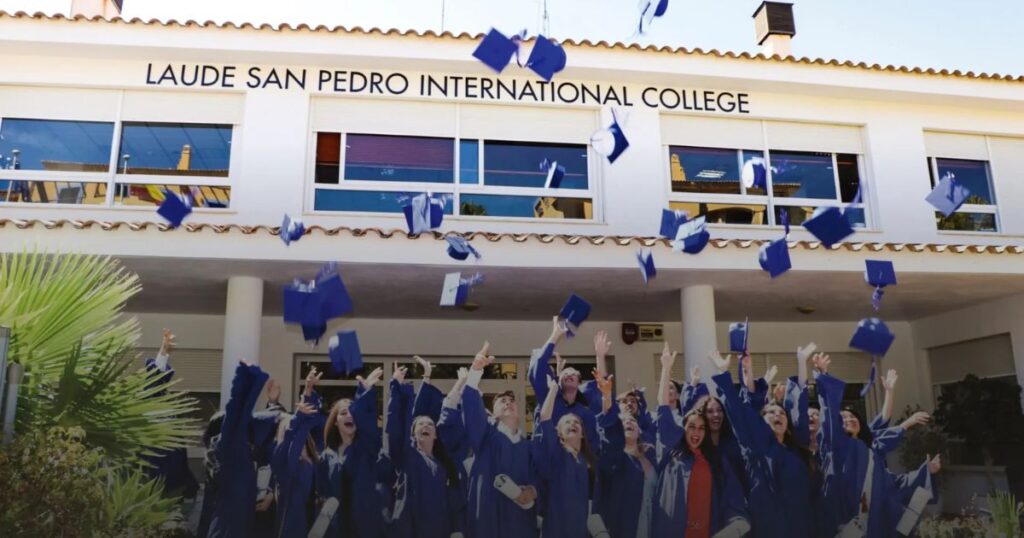
International schools overview
There are loads of great international schools in Marbella and surrounding areas. You’ll find British curriculum private schools that are delivering top notch education from nursery through to A levels, as well as IB and bilingual Spanish options. Bus routes cover most neighbourhoods, including the Golden Mile, Sierra Blanca, and San Pedro.
Typical school fees (guidance only): €7,000 to €18,000 per year – its a big variation depending on the age of your kid, what curriculum they’re doing, & any extras you might want to pay for. Its worth noting that admissions open early, and some year groups can be pretty popular, so get in there early.
Other education routes
- Spanish public schools – free, great way to get your kids fully immersed in Spanish & get them to speak it fluently in the long run
- Language schools – there are loads of courses for adults to help with everyday Spanish
- Enrichment: loads of sports, clubs, arts, coding – you name it, its out there
Language & integration
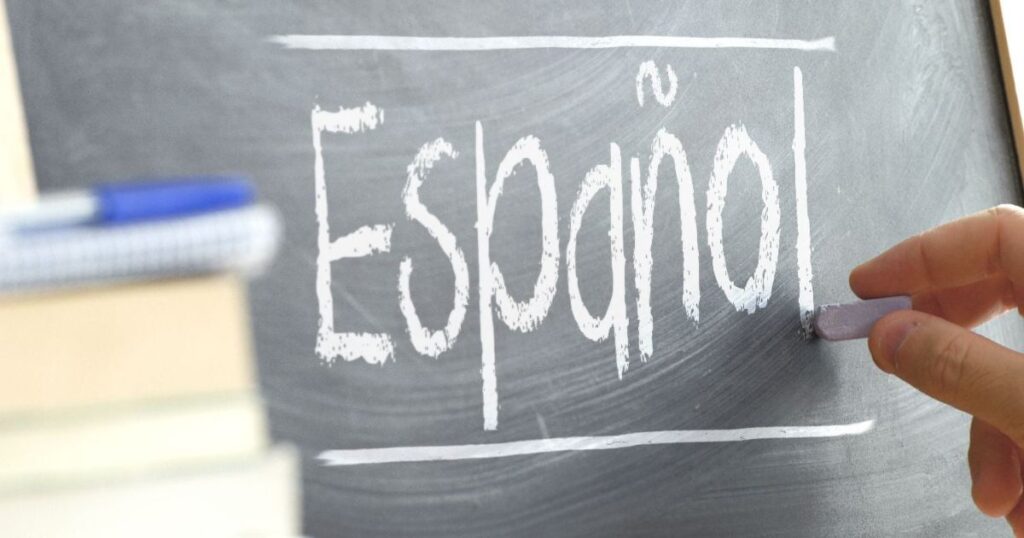
Do you need to speak Spanish?
While English is pretty widely used in real estate, hospitality, and among expats, being able to speak Spanish makes life a heck of a lot easier, especially when dealing with the town hall, banks, & clinics. Start with some basic phrases & go from there.
Some useful basic Spanish phrases to get you started:
- “Buenos días / Buenas tardes” – good morning/afternoon
- “Me gustaría empadronarme” – i’d like to register on the padron
- “Necesito una cita” – i need an appointment
- “¿Cuánto cuesta?” – how much is it?
- “¿Dónde está la parada de autobús?” – where is the bus stop?
- “No hablo mucho español todavía” – i dont speak much spanish yet
Getting around: cars, public transport, travel
Inside Marbella
Buses run pretty regularly around Marbella Town, San Pedro, Puerto Banus and the surrounding areas, with taxis & ride-hailing services to fall back on. The bus system is pretty reliable but not so great later at night or out in the country. Parking can be tight in the Old Town & around Puerto Banus in the summer – many buildings have underground parking.
Regional & international access
Malaga Airport is your best bet for getting to anywhere in Europe – they fly to loads of major cities, including London, Paris, Amsterdam, Dublin & more. The AP-7 motorway (toll) & A-7 (free) roads make driving around the Costa del Sol a breeze. You can also get trains from Malaga to Seville, Madrid & other major cities.
Lifestyle: beaches, dining, golf, & nightlife
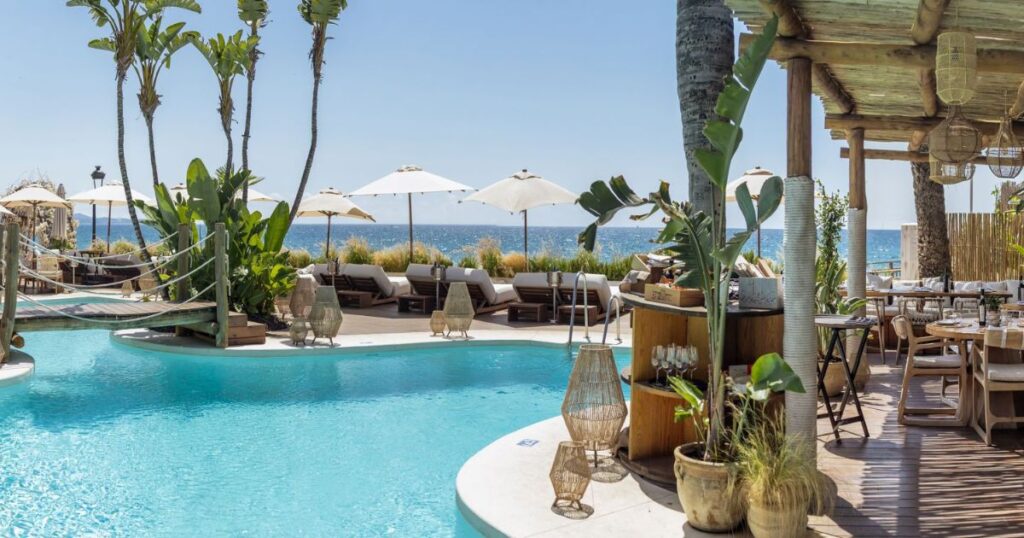
Beaches & daytime fun
From family friendly beaches with shower & play areas to smart beach clubs, Marbella’s coastline has got something for everyone. Beach bars (chiringuitos) serve up fresh fish and paella & if you’re feeling fancy, try some sardines grilled on a skewer (espetos). The water is pretty swimmable most of the year.
Golf & outdoor life
Marbella is a golfers paradise with loads of courses, many of them private, right on your doorstep. Beyond the golf courses, Sierra Blanca has got some amazing hiking trails with some absolutely incredible views over Marbella Town & the Mediterranean.
Nights out & luxury venues
There’s no shortage of nightlife in Puerto Banus: live music, pool parties, high-end dining. Michelin-starred restaurants sit alongside tapas bars where locals hang out. Resort hotels are always hosting events, and the top hotels have got seasonal galas.
Family life & everyday life
Families are real fans of parks, skate areas, weekly markets and festivals. Weekend routines in Marbella have got it all: a leisurely stroll on the beach, the kids in sports classes and dinner in the heart of the Old Town. Many international families reckon the safety, sunshine, and community vibe is what really draws them to the place.
Safety, climate, and quality of life – what Marbella gets right

Marbella’s Mediterranean climate means you can expect warm dry summers and mild winters; and don’t worry those sea breezes will keep the summer heat from getting too out of hand. As for safety, well the area is generally pretty secure, although you would still want to keep an eye out for the usual tourist scams in the summer months.
Is Marbella a posh enclave or a gritty working class Spanish town? Well, actually, it’s a bit of both – depending on where you are in the city. On the Golden Mile, it’s luxury living; in Puerto Banus, you’re rubbing shoulders with the yachting crowd; and in San Pedro and the Old Town, life is lived with a more everyday rhythm.
Frequently Asked Questions about living in Marbella as an expat
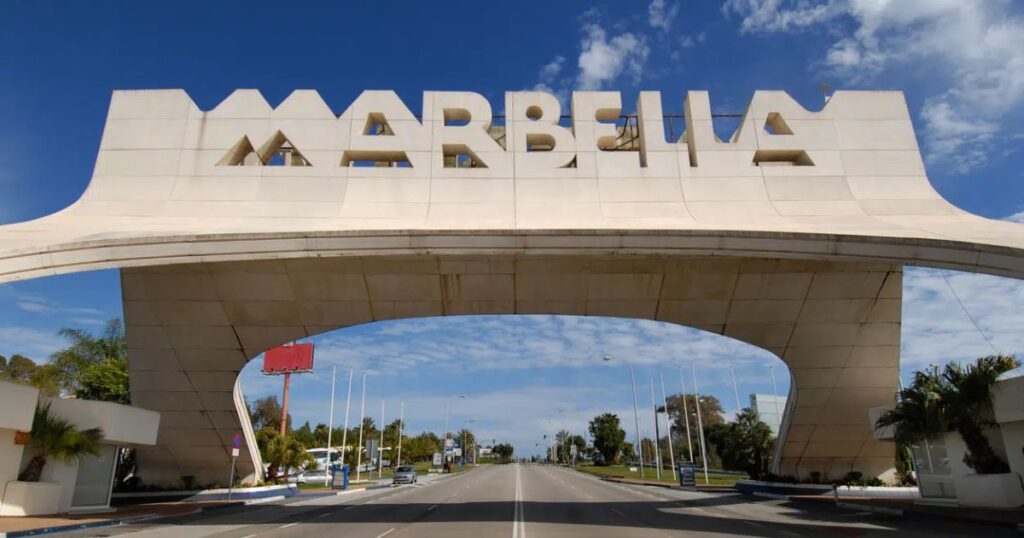
- Is it a lot pricier than the other Costa del Sol towns?
- Yes, if you’re looking at the prime zones, but out in San Pedro and further inland, things are a bit more affordable.
- Best areas for families?
- San Pedro de Alcántara and bits of Marbella Town that are close to schools are pretty popular, and some of the quieter bits of Sierra Blanca.
- Do I really need to speak Spanish?
- You can get by without it, but learning a bit more than just basic phrases will really help out with admin and making friends.
- Any decent international schools with a British curriculum in Marbella?
- Yes – there are a few private schools that offer a solid British international education and pretty good results.
- What about public healthcare?
- You need to register as a resident and with social security, and many people also get private insurance as a backup.
- Do I need a car?
- Public transport is pretty good for the main routes, but lots of people still get a car for school runs, golf, and just generally getting around.
- How close is Malaga Airport?
- About 40-50 minutes, and easy to get to major European cities and loads of other big cities.
- How does income tax work in Spain?
- Progressive rates apply; get some tailored advice if you’re dealing with international income.
- Any jobs for international clients?
- Yes, in real estate, hospitality, wellness and services – and having some language skills is a big help.
Resources, tools, and authoritative links
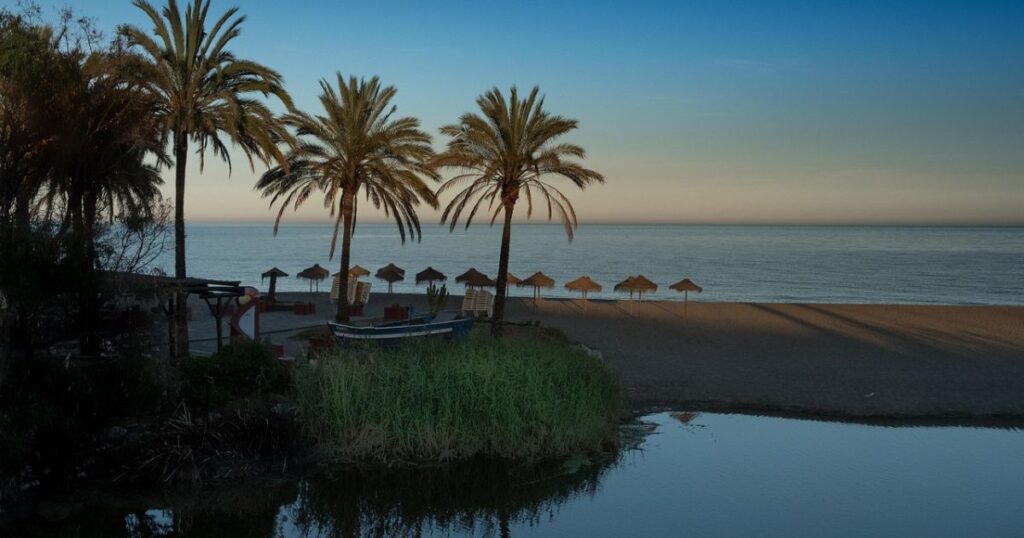
- Marbella Town Hall (Ayuntamiento): https://www.marbella.es
- Getting registered (Empadronamiento): https://www.marbella.es/ayuntamiento/atencion-ciudadana/padron.html
- Hospital Costa del Sol: https://www.hcs.es
- Andalusian Health Service (SAS): https://www.juntadeandalucia.es/organismos/saludyfamilias
- Spanish Tax Agency (AEAT): https://sede.agenciatributaria.gob.es
- National Police (NIE/TIE): https://www.policia.es
- Education in Andalusia: https://www.juntadeandalucia.es/educacion
Conclusion: Is living in Marbella as an expat the right choice for you?
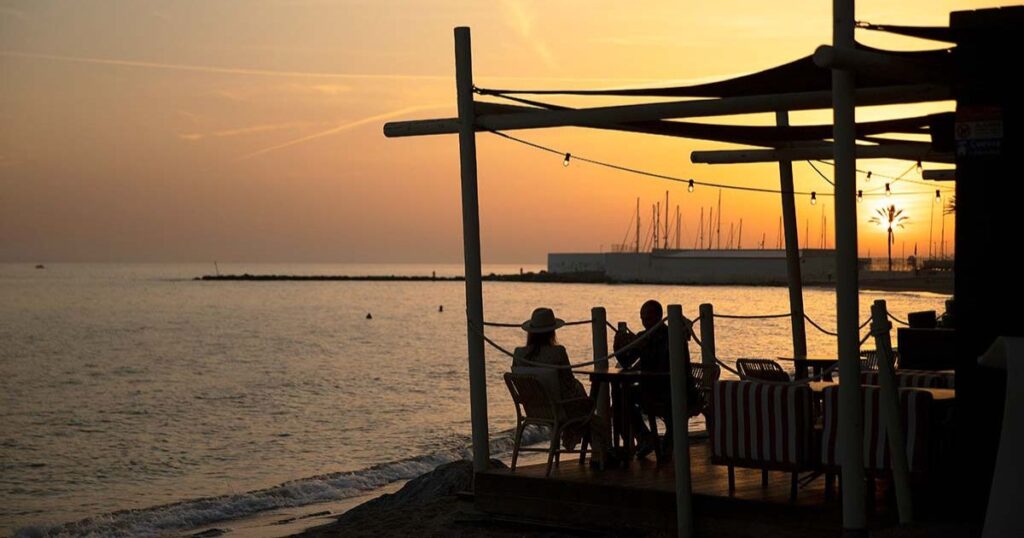
Marbella has got it all – sunshine, safety, outdoor life and culture. International families, remote workers, retirees and entrepreneurs find that Marbella offers both luxury living and the everyday rhythms of a typical working Spanish town, with some top notch international schools, strong healthcare options and a very welcoming expat community.


